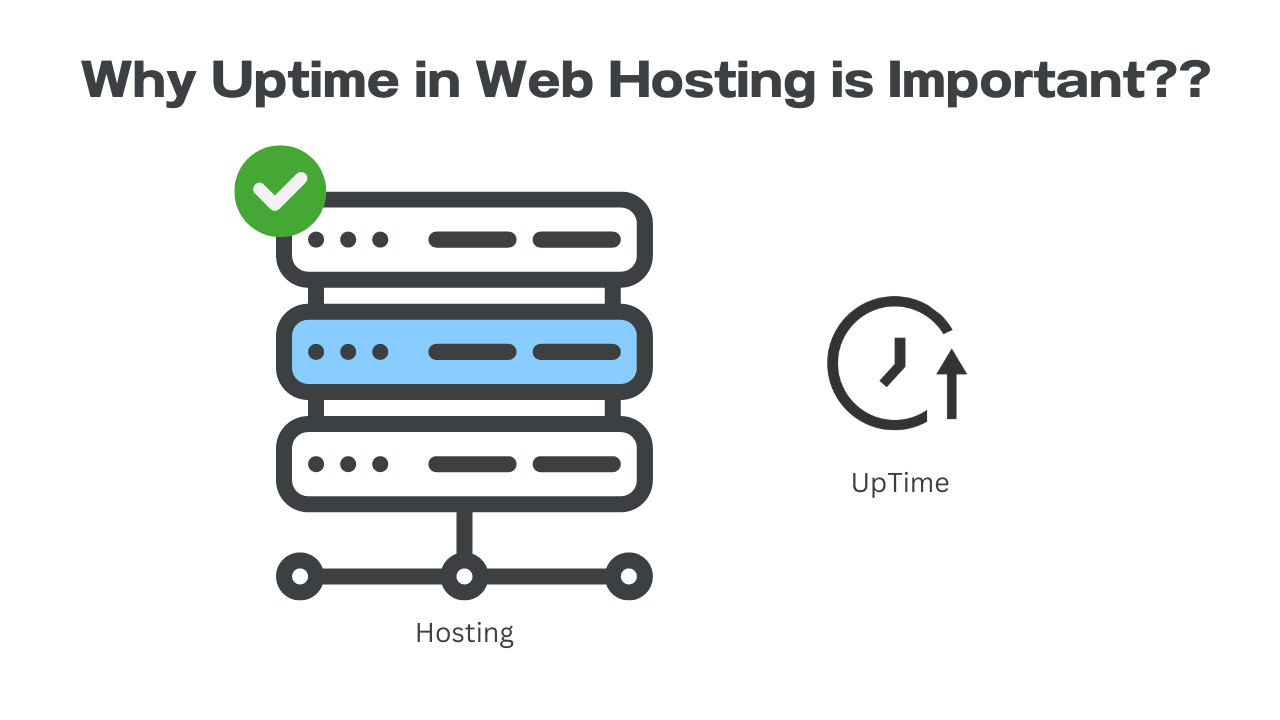The Importance of Uptime in Web Hosting
In today’s digital age, a robust online presence is crucial for businesses and individuals alike. Whether you’re running an e-commerce store, a blog, or a corporate website, reliable web hosting is the backbone of your online success. One often overlooked but vitally important aspect of web hosting is uptime. In this article, we will delve into the significance of uptime in web hosting and why it’s a critical factor for your website’s performance and user experience.
Table of Contents
- Introduction
- Understanding Uptime and Downtime
- The Impact of Downtime
- Why Uptime Matters
- Factors Affecting Uptime
- Choosing a Reliable Web Hosting Provider
- Monitoring and Ensuring Uptime
- Best Practices for Maintaining Uptime
- Uptime vs. Load Time
- Mobile Responsiveness and Uptime
- E-commerce and Uptime Challenges
- SEO and Uptime
- Scaling and Uptime Considerations
- Recovering from Downtime
- Conclusion
- FAQs
Introduction
When you click on a website link, you expect the page to load promptly without any delays or errors. Behind the scenes, web hosting plays a pivotal role in making this seamless experience possible. Uptime, in simple terms, refers to the amount of time your website is up and running, accessible to visitors.
Understanding Uptime and Downtime
Uptime is typically measured in percentages, and it represents the time your website is operational and reachable by users. On the flip side, downtime is the period when your website is inaccessible due to server issues, maintenance, or technical glitches.
The Impact of Downtime
Downtime can have dire consequences for your online endeavors. It translates to missed opportunities, frustrated visitors, and potential revenue loss. Imagine an e-commerce website facing downtime during a peak sales period – the financial implications could be substantial.
Why Uptime Matters
- User Experience: Visitors demand instant access. If your site is frequently down, users might turn to your competitors for a smoother experience.
- Search Engine Rankings: Search engines like Google prioritize websites with good uptime. Consistent downtime could negatively impact your search engine rankings.
- Credibility and Trust: A reliable website builds trust with your audience. Extended downtime might make users perceive your business as unreliable or unprofessional.
- Conversions and Sales: Downtime directly impacts your conversion rates. A website that’s always up increases the chances of visitors becoming customers.
Factors Affecting Uptime
Several factors influence a website’s uptime:
- Hosting Infrastructure: The quality of your hosting provider’s infrastructure significantly impacts uptime.
- Server Maintenance: Regular maintenance reduces the risk of unexpected downtime.
- Security Measures: Robust security measures prevent malicious attacks that could lead to downtime.
- Traffic Surges: A sudden influx of visitors, especially for popular websites, can lead to downtime if not managed properly.
Choosing a Reliable Web Hosting Provider
Selecting the right hosting provider is crucial for ensuring uptime. Factors to consider include server reliability, customer support, scalability, and the hosting environment (shared, VPS, dedicated).
Monitoring and Ensuring Uptime
Continuous monitoring allows you to identify downtime promptly and take necessary actions. Utilizing monitoring tools and services can help you stay on top of your website’s uptime.
Best Practices for Maintaining Uptime
- Regular Backups: Backing up your website data ensures you can quickly restore it in case of downtime.
- Content Delivery Network (CDN): CDNs distribute your website’s content across multiple servers, reducing the risk of downtime.
- Load Balancing: Distributing traffic across multiple servers prevents overload and potential downtime.
Uptime vs. Load Time
While uptime ensures your website is accessible, load time determines how fast it loads. Both are interconnected and critical for user satisfaction.
Mobile Responsiveness and Uptime
With the rise of mobile browsing, ensuring uptime on various devices is essential. Mobile users expect the same level of accessibility as desktop users.
E-commerce and Uptime Challenges
For e-commerce businesses, uptime is directly tied to sales. Downtime during critical shopping moments can lead to cart abandonment and revenue loss.
SEO and Uptime
Search engines value consistent availability. Uptime contributes to a positive user experience, indirectly influencing your SEO efforts.
Scaling and Uptime Considerations
As your website grows, scalability becomes vital. Scaling up without compromising uptime requires strategic planning and reliable hosting.
Recovering from Downtime
Despite precautions, downtime can still occur. Having a recovery plan in place minimizes its impact and ensures a smoother restoration process.
Conclusion
In the digital landscape, a website’s uptime is a cornerstone of success. It impacts user experience, credibility, sales, and search engine visibility. Prioritizing a reliable web hosting provider and implementing strategies to ensure uptime is a non-negotiable aspect of maintaining a competitive online presence.
FAQs
- What is uptime in web hosting?
Uptime refers to the duration your website is operational and accessible to users without disruptions. - How does downtime affect SEO?
Downtime can negatively impact SEO by affecting user experience and search engine rankings. - Can I prevent all instances of downtime?
While it’s impossible to eliminate all downtime, proactive measures can significantly minimize its occurrence. - Is shared hosting reliable for uptime?
Shared hosting can be reliable if you choose a reputable provider that manages server resources effectively. - Why does mobile responsiveness matter for uptime?
Mobile users constitute a significant portion of web traffic, and ensuring uptime for them is essential for a seamless experience.


